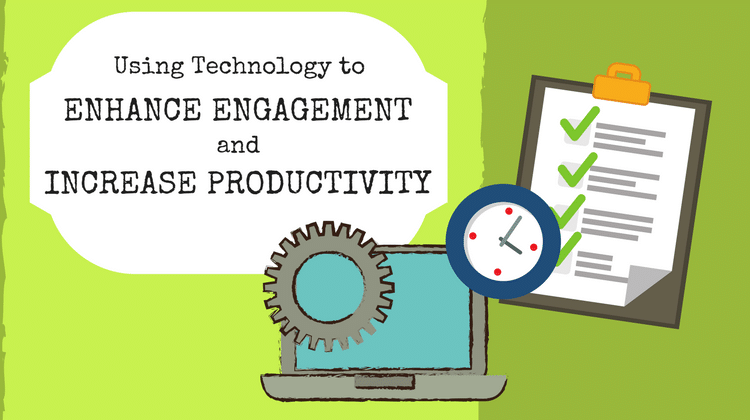
In an era of technology, enhanced corporate transparency, and greater worker mobility, employee culture and engagement issues have become the biggest challenges for business leaders across all industries. If you look at the numbers from Gallup’s latest State of the American Workplace report, you will notice that over 70% of workers today are not engaged at work.
While the number is definitely alarming, we cannot talk about the impact of employee engagement before we actually establish what engagement really means. For starters, you have to realize that engagement does not mean employee satisfaction or happiness.
For instance, a satisfied employee might show up for his or her daily shift without any complaints. However, if your employees are personally satisfied, it does not mean they will work harder on behalf of your organization.
Employee engagement is something completely different. The NY Times best-selling author, Kevin Kruse defines engagement as “the emotional commitment the employee has to the organization and its goals.” This means employees are engaged when they don’t simply care about the next paycheck, but instead, work on behalf of the company’s goals.
So what do you need to do to make sure that your employees stay fully engaged and productive at all times? The answer is quite simple actually – leverage technology at your disposal to inspire and actively engage your workforce.
Improving Benefits Delivery
Even though company culture is regarded as the most important aspect of workplace satisfaction, according to the Society for Human Resource Management, most employees value health care benefits as much as their salary.
Today, when it comes to benefits, employees have more options than ever, so you have to provide much more guidance to help them understand these options. Communication platforms — like Jellyvision Lab’s ALEX — which provide actionable information and trend data that illustrates what all of these choices mean, can and will go a long way in driving educated decision-making,and of course, engagement.
Technology Enables Better Collaboration
Actionable data and information are essential for the success of your business and if not shared freely, your organization will surely struggle to build and maintain a collaborative and productive environment. However, a large number of data breaches continues to hold back so many companies from sharing sensitive information.
But employees are looking to engage in new levels of collaboration and data sharing, and organizations that miss the opportunity to build a collaborative team will struggle to keep their staff motivated. These collaboration platforms have become practically indispensable in today’s market. Alfresco Research indicates that more than 80% of organizations would be heavily affected by the loss of collaboration technology.
Benefits of Gamification and P2P Recognition
Gamification is the process of incorporating gameplay elements into your business process. While the concept may seem silly at first glance, gamification is not to be taken lightly. Gartner Group reports that around 50% of companies that manage innovation processes gamify these processes.
Furthermore, roughly 70% of Forbes Global 2000 companies are using at least one game-based application. Huge corporations like Nike and Ford have used gamification to improve the way the higher-ups communicate with the employees and recognize their individual efforts.
The process can even help you shape better peer-to-peer recognition programs and help create the organic peer-based praise your employees want and need.
Engagement Tracking Tools
How can you actually know if your employees are content or not? In addition to understanding the health of your company culture, you need a system that tracks employee satisfaction over time, and in order to make changes, address issues, and enhance your engagement, you definitely need to have this information.
Here are some of the tools that can help you make improvements in your organization:
15Five
The basic idea of 15Five is that on average, an employee takes 15 minutes to answer a survey and a manager needs only five minutes to review it. The tool allows you to create custom questions, set different managers to review different employees, and send feedback directly to your employees.
Polly
If your employees ignore your emails but have plenty to say on Slack, then Polly (formerly Subcurrent) is an easy way to get an opinion on any company event or even policy. You just need to log in with Slack, type the poll command, and receive a URL that allows you to fully customize your poll.
Achievers
Achievers (which recently acquired RoundPegg) surveys your workers in eight areas – including job fit, growth, and development – that have been known to align with engagement. After your employees are polled, the tool then provides you with recommendations to improve your score in weak areas based on different cultural types of your workers.
Power of Video
Marketers have known about the power of video for years at this point, but the current growth of video inside companies can be attributed to the rapid rise of social media and smartphone usage in the “outside world”.
According to eMarketer, young consumers now spend more time watching videos than television and a vast majority of successful content marketing agencies will tell you that video content achieves much higher engagement than any text article.
The fact remains that video communications are far more emotive, personal, and engaging than text, which makes video a more effective vehicle for driving home messages and ensuring information is retained.
Conclusion
Before your company undertakes a long planning process to boost engagement, which can only overwork your already stressed-out staff, you should try something simpler. There is no shortage of engagement enhancing software on the market that will help you boost engagement quickly and cheaply.
As I said at the beginning of this article, we are living in an era of technology, and if you want to have a satisfied, productive workforce, you need to embrace it completely.
About the Author
Divya Shankar is a marketing and management assistant for Myhrtoolkit, a HR software for SMEs.